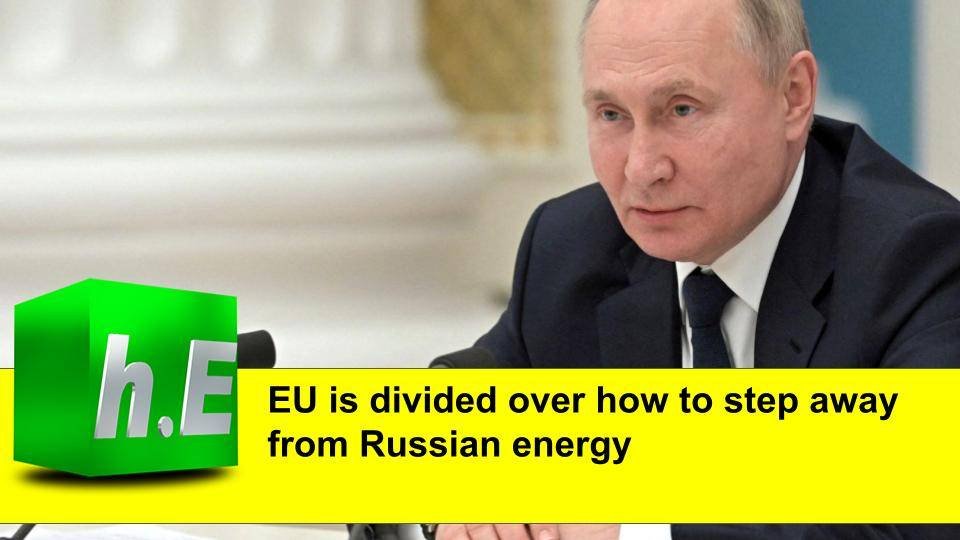European Union countries are split on how soon they wind down dependence on Russian energy supplies.
While sanctions have been applied to other areas of business, the EU remains heavily reliant on Russian oil and gas.
Germany’s economic minister said the country would be able to weather a Russian oil ban by the end of 2022, as he appeared to back tougher sanctions.
However, Hungary has said it opposes such a move, stating it would not back measures that could endanger supplies.
The European Union has spent the last few months imposing sanctions on Russia, from travel bans to asset freezes, alongside other western nations like the US and the UK. And while these impacted Russia more indirectly, many said the measures didn’t go far enough – conveniently missing out one very important element – gas.
Now the EU has announced that it plans to slash Russian gas imports by two-thirds in response to the war in Ukraine. The aim is to significantly reduce reliance on Russian natural gas coming into the bloc by 2023.
In the same week, US President Joe Biden imposed an immediate ban on Russian oil and other energy imports and the UK said it would phase out imports by the end of 2022.
“It’s hard, bloody hard, but it’s possible if we’re willing to go further and faster than we’ve done before,” said Frans Timmermans, the vice-president in charge of the EU Green Deal.

The decision was made after fears that European demand for gas may be bankrolling the war in Ukraine.
Gas and oil have kept flowing even as governments denounce the war. The EU sends $450 million a day to Russia for oil and $400 million per day for natural gas, according to calculations by analysts at the Bruegel think tank in Brussels.
That means energy revenue is bolstering the Kremlin’s budget, adding to foreign currency reserves that could help Russia support the ruble and partly make up for Western sanctions that froze much of Russia’s foreign currency reserves held outside Russia.
Europe is the biggest purchaser of Russian crude, receiving 138 million tons in 2020 out of Russia’s total exports of 260 million tons — or 53%, according to the BP Statistical Review of World Energy. Europe, which imports almost all of its crude, gets a quarter of its needs from Russia.
Oil is refined into fuel for heating and driving as well as being a raw material for industry.
The European Commission, the executive arm of the EU, on Wednesday put forward new sanctions against the Kremlin which will include a six-month phase out of Russian crude imports.
Russia’s unprovoked invasion of Ukraine, and evidence of war crimes, has pushed the EU to take bolder steps on energy sanctions. But imposing measures that could reduce, or fully cut, Russian energy supplies to the EU have been a complicated task for the bloc.
This is because the region is reliant on Russia for several sources of energy, including oil. In 2020, Russian oil imports accounted for about 25% of the bloc’s crude purchases, according to the region’s statistics office.
“Let us be clear: it will not be easy,” European Commission President Ursula von der Leyen said during a speech at the European Parliament Wednesday.
“Some member states are strongly dependent on Russian oil. But we simply have to work on it. We now propose a ban on Russian oil. This will be a complete import ban on all Russian oil, seaborne and pipeline, crude and refined.”
Oil prices were trading about 3% higher on Wednesday morning. Brent crude futures were trading at $108.3 a barrel in late morning deals in Europe.
We have always emphasized the importance of having a good website for your company because it can act as your best tool for marketing and sales. A poorly designed website can repulse people from your business and can cause you to lose customers before you even have them. Get in touch with HyperEffects to work on creating, enhancing, and making the website of your company more user-friendly.

